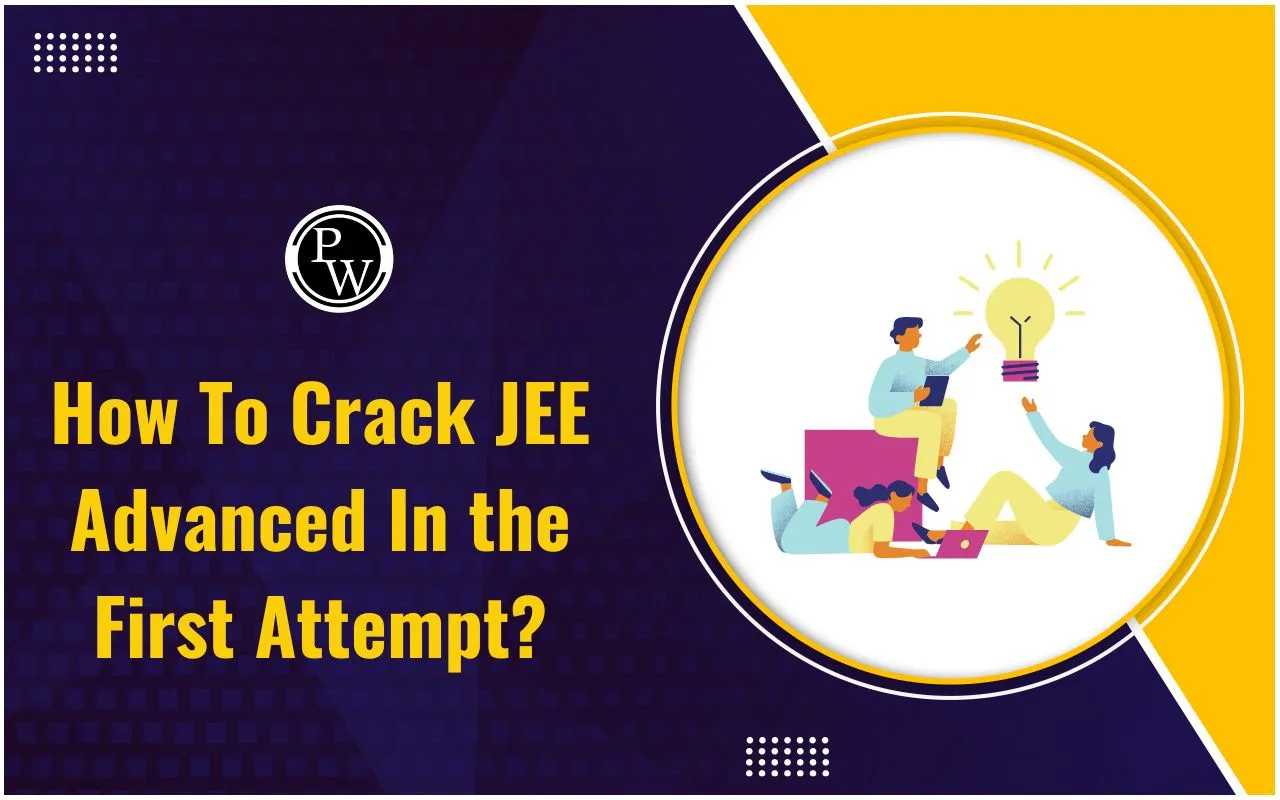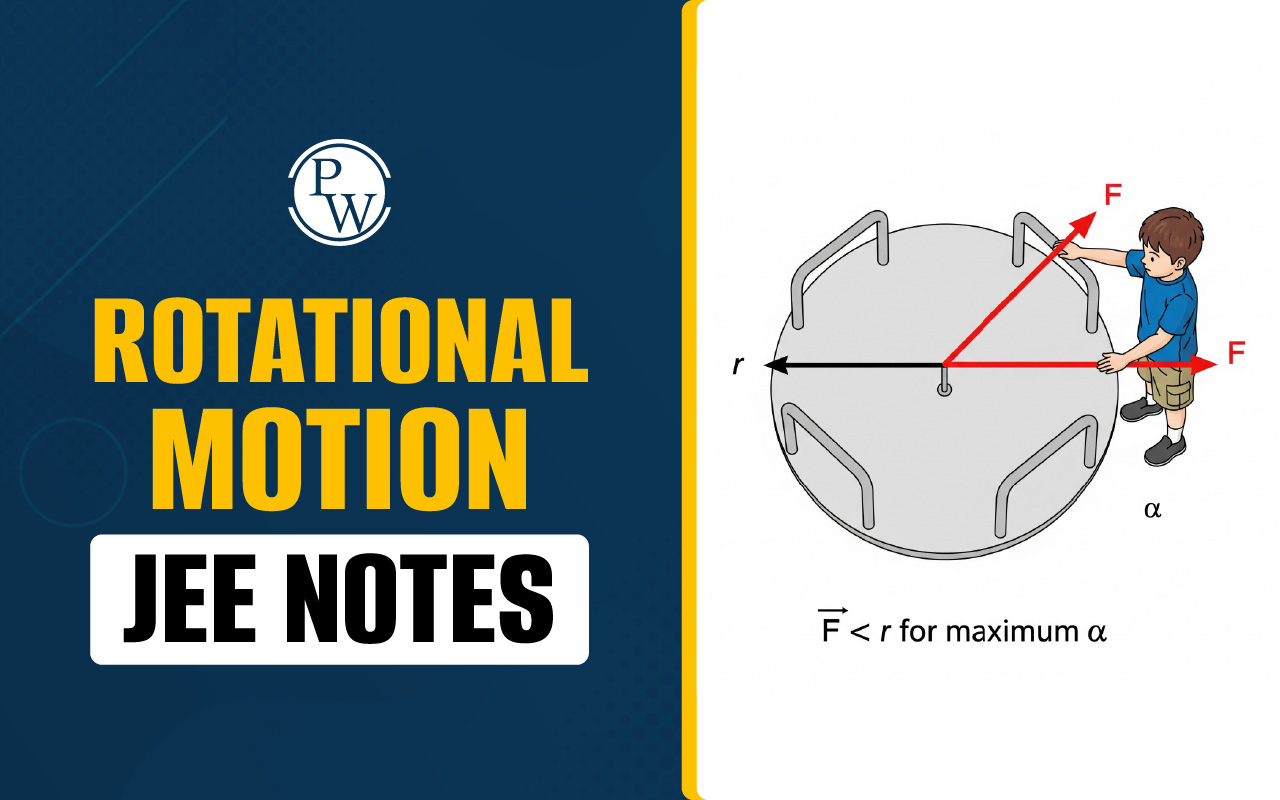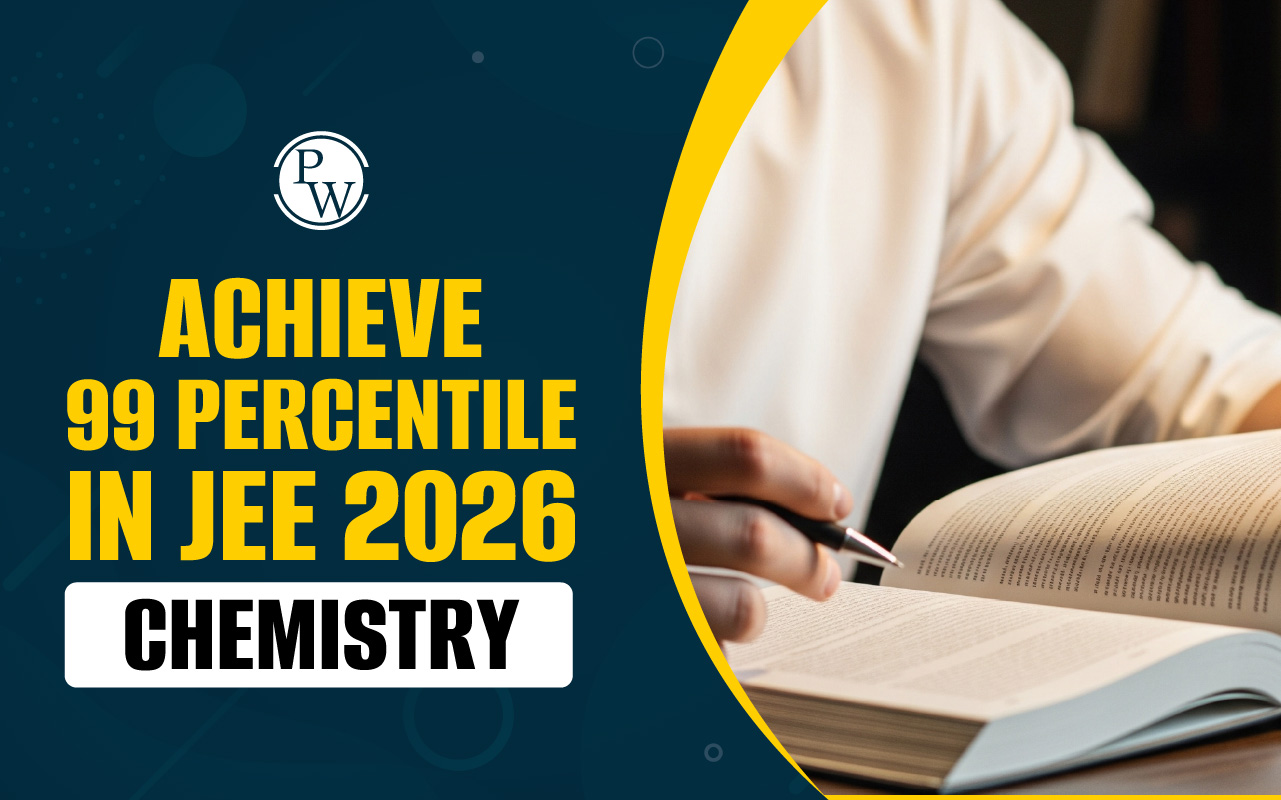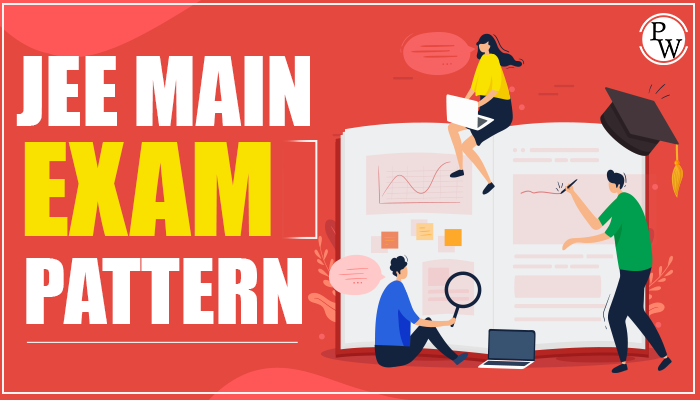
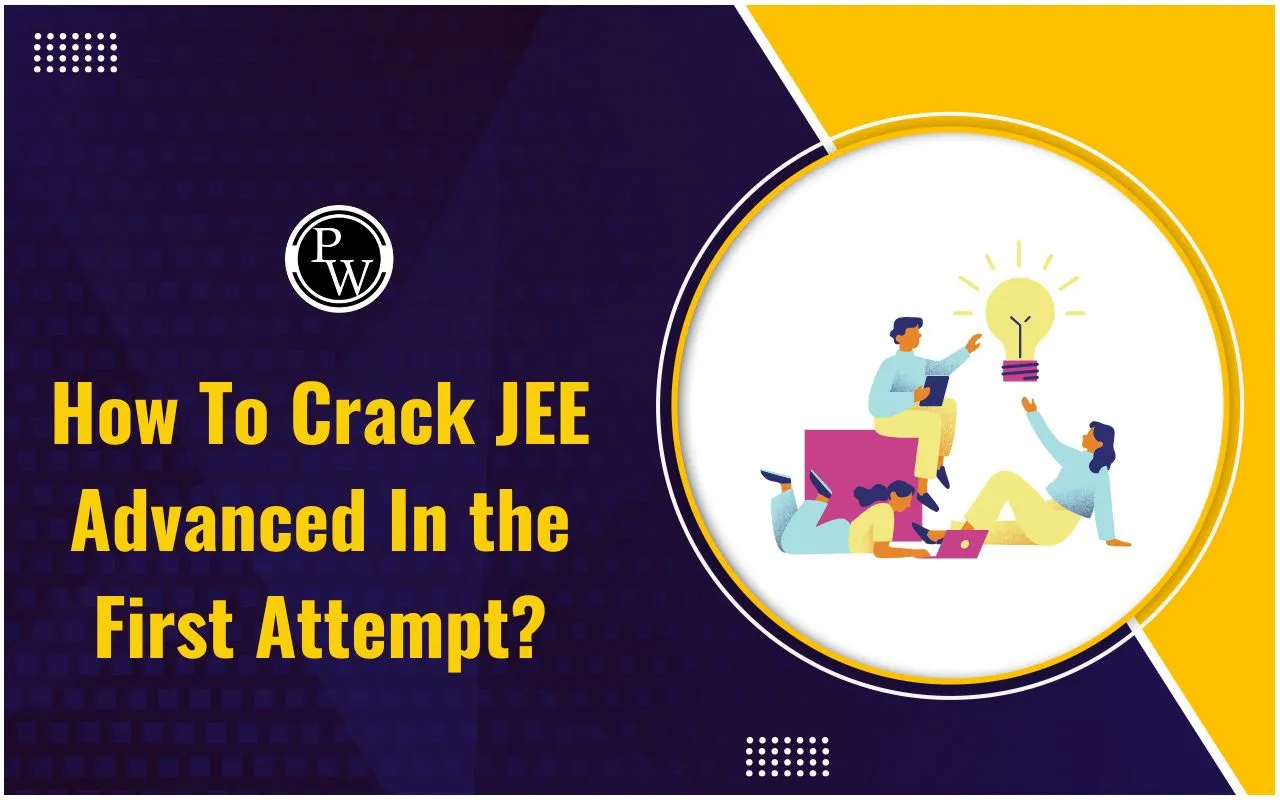
How to Crack JEE Advanced in the First Attempt?: Securing a top rank in JEE Advanced needs more than just hard work—it demands a well-structured approach and smart strategies. Looking at the past 11 years’ toppers, a few common things can be seen in their preparation. They focused on building strong fundamentals, solving a variety of problems, and maintaining a disciplined study routine. What set them apart was their ability to analyze mistakes, manage time efficiently, and stay consistent with their revision. Instead of just covering the JEE Advanced Syllabus, they worked on mastering concepts through regular practice and self-evaluation. If you're looking for the answer to "How to Crack JEE Advanced in the First Attempt?, keep reading to uncover the effective tips from toppers of the last 11 years for JEE Advanced 2025 preparation.
How to Crack JEE Advanced in the First Attempt? Tips from the Last 11 Years’ Toppers
It goes without saying that the JEE Advanced is one of the toughest engineering entrance exams in India. Lakhs of aspirants prepare for this exam with the dream of securing admission to IITs. While hard work is important, success in JEE Advanced also depends on smart preparation strategies. Over the last 11 years, toppers have followed different methods to achieve top ranks. Some started early, while others focused on problem-solving and time management. To help you prepare better for the upcoming JEE Advanced 2025, here are the strategies and tips followed by JEE Advanced toppers from the past 11 years:
1. Aditya (JEE Advanced 2024, AIR 2)
-
Aditya started his JEE preparation in Class 11, giving himself two full years to build strong fundamentals.
-
His study plan revolved around effective time management, making sure that he could cover all subjects equally without feeling overwhelmed.
-
He focused on understanding concepts rather than memorization, which helped him solve tough problems during the JEE Advanced exam.
2. Koduru Tejeswar (JEE Advanced 2024, AIR 8)
-
Unlike many other toppers, Tejeswar started his JEE journey in Class 9th, giving him more time to master difficult topics.
-
His main strategy was solving a large number of questions, which improved his speed and accuracy.
-
Practicing different types of problems helped him become comfortable with the exam’s difficulty level.
3. Prakhar Jain (JEE Advanced 2023, AIR 21)
-
Prakhar first focused on NCERT books before moving on to study materials provided by his coaching institute.
-
He made sure to take full-length JEE mock tests at least 8 months before the exam, which clearly helped him analyze his performance early and perform his best in the final exam.
-
His exam strategy was different—he solved one subject at a time in the order of Chemistry, Physics, and Mathematics (CPM) instead of switching between subjects frequently.
4. Gulshan Kumar (JEE Advanced 2022, AIR 37)
-
Gulshan dedicated a huge amount of time to understanding fundamental concepts before moving on to advanced-level problems.
-
He followed a step-by-step approach during the exam:
-
Solved easy chemistry questions first to gain confidence.
-
Moved on to physics, then mathematics.
-
Re-attempted difficult questions at the end to increase accuracy.
-
Gulshan focused and highlighted the importance of accuracy over speed while solving problems.
5. Mridul Aggarwal (JEE Advanced 2021, AIR 1)
-
Mridul’s mantra for success was to learn from mistakes rather than feeling discouraged by them.
-
He dedicated 8 to 9 hours daily to studying core subjects, making sure that he had enough time for revision and practice.
-
Instead of stressing over difficult topics, he focused on consistent improvement and self-analysis.
6. G. Bhuvan Reddy (JEE Advanced 2020, AIR 2)
-
Bhuvan started his preparation in Class 11, making sure to focus on basic concepts first before moving on to tough problems.
-
He followed a structured study plan set by his coaching institute and did not miss weekly mock tests.
-
The mock tests helped him identify weak areas and adjust his preparation accordingly.
7. Parvik Dave (JEE Advanced 2019, AIR 60, Gujarat State Topper)
-
Parvik believed in consistent revision, making sure he retained what he studied.
-
He dedicated 10 to 12 hours daily to studies, ensuring he covered all subjects in depth.
-
His approach involved breaking long study hours into smaller sessions, allowing him to stay focused.
8. Pranav Goyal (JEE Advanced 2018, AIR 1)
-
Pranav started preparing in Class 11th and studied 8 to 9 hours daily.
-
He focused on conceptual understanding rather than rote learning, which helped him in the advanced-level questions.
In the last three weeks before the exam, he solved multiple online mock tests and the last 8 to 9 years of JEE Advanced previous year question papers, which gave him a good idea of the difficulty level and time management.
9. Sarvesh Mehtani (JEE Advanced 2017, AIR 1)
-
Sarvesh spent 2 to 3 years preparing for the exam, dedicating 10 to 12 hours daily during peak study periods.
-
He dedicatedly solved mock tests and previous years’ question papers, which helped him get familiar with the JEE Advanced Exam Pattern.
-
He followed subject-specific books for Physical Chemistry, Organic Chemistry, Inorganic Chemistry, and Mathematics, ensuring he had in-depth knowledge.
10. Aman Bansal (JEE Advanced 2016, AIR 1)
-
Aman started his JEE preparation in Class 11 and took coaching in Kota.
-
He followed his teachers' guidance closely, using their notes and study materials.
-
Instead of following a strict daily schedule, he studied 7-8 hours on some days and up to 9-10 hours on others, depending on his focus level.
-
He made sure to identify and correct his silly mistakes by reviewing previous test papers.
11. Satvat Jagwani (JEE Advanced 2015, AIR 1)
-
Satvat started preparing two years before the exam and attended coaching classes.
-
He dedicated around 5 to 6 hours daily to self-study, making sure that he had enough time to strengthen weak areas.
-
His strategy included regular practice and taking mock tests to improve speed and accuracy.
12. Chitraang Murdia (JEE Advanced 2014, AIR 1)
-
Chitraang started preparing after Class 10th, which gave him enough time to build a strong foundation early.
-
He attended classes regularly and participated in frequent tests to track his progress.
-
His advice to aspirants is simple—stay focused, avoid distractions, and work hard.
How to Crack JEE Advanced in the First Attempt? Key Takeaways from Toppers’ Strategies
Based on the JEE Advanced toppers' experiences of the last 11 years', a few common tips that stand out and can be a game changer for those aiming to crack JEE Advanced in the first attempt are:
-
Start Early: Many toppers began their preparation in Class 9 or 11, giving them enough time to cover the syllabus deeply.
-
Build Strong Fundamentals: Concepts from NCERT books should be clear before moving to advanced-level problems.
-
Follow a Study Plan: Time management is crucial. Allocate time for each subject based on strengths and weaknesses.
-
Practice Mock Tests: Taking full-length JEE Mock Tests regularly helps improve speed, accuracy, and confidence.
-
Solve Previous Years' Papers: Practicing past 8-10 years’ JEE Advanced question papers give an idea of the exam’s difficulty level.
-
Manage Exam Time Wisely: Some toppers solved Chemistry first, as it was easier, before moving to Physics and Maths.
-
Learn from Mistakes: Instead of getting discouraged, analyzing mistakes in mock tests helps in improving performance.
- Stay Consistent and Motivated: Avoid burnout while studying for JEE Advanced by maintaining a balance between studies, revision, and relaxation.
JEE Advanced Difficulty Level Over the Years: Trends and Changes
The difficulty level of JEE Advanced has changed over the past 11 years, with some years having moderate question papers while others had highly challenging ones.
-
Fluctuating Difficulty: The toughness of the exam has not remained constant, with different subjects and sections posing varying levels of challenge each year.
-
Greater Focus on Concepts: Recent years have seen a shift towards conceptual questions that test an applicant's in-depth understanding rather than just memorization.
-
Application-Based Questions: The exam now includes more problem-solving questions that require logical thinking and practical application of concepts.
IIT Kanpur is going to hold JEE Advanced 2025 as a computer-based test (CBT) consisting of two papers. Both papers have three sections—Physics, Chemistry, and Mathematics—and must be attempted by all applicants seeking admission to the Indian Institutes of Technology (IITs).
How To Crack JEE Advanced In the First Attempt? FAQs
Q.1. How to prepare for JEE Advanced 2025 after the JEE Main April attempt?
Q.2. How to crack JEE Advanced in the first attempt?
Q.3. How many hours should I study daily to crack JEE Advanced in the first attempt?
Q.4. Are NCERT books enough to prepare for JEE Advanced 2025?
Q.5. Can I crack JEE Advanced 2025 with 45 days of preparation?

